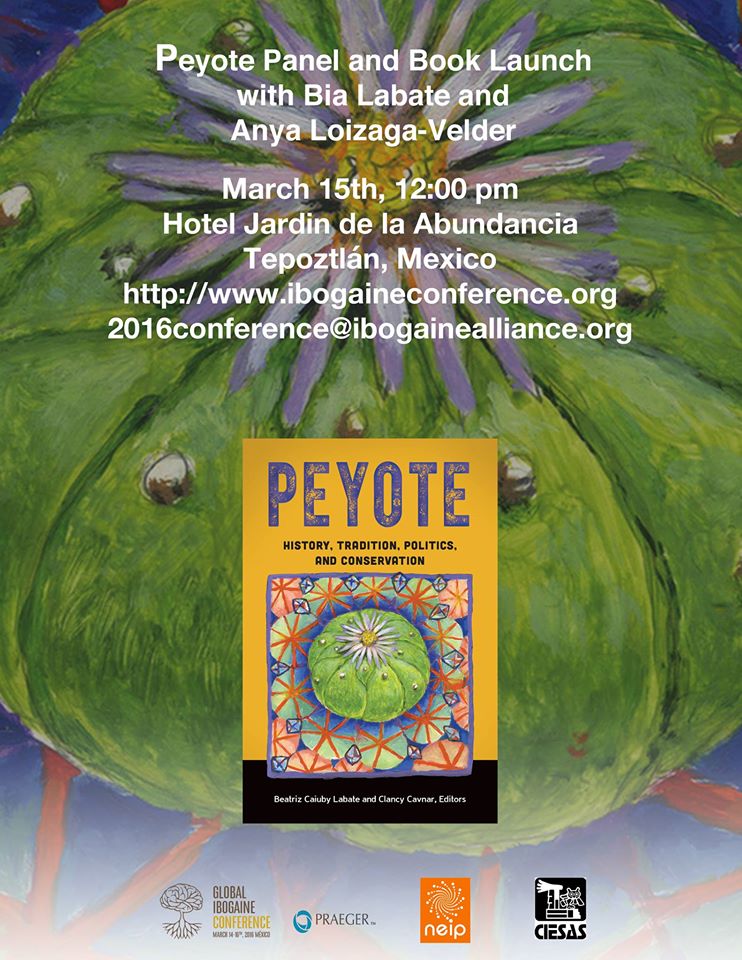Book Launch: Peyote: History, Traditions, Politics, and Conservation
 Co-edited by Beatriz Labate and Clancy Cavnar
Co-edited by Beatriz Labate and Clancy Cavnar
This book focuses on peyote (Lophophora williamsii), a hallucinogenic cactus containing mescaline, which grows naturally in Mexico and southern Texas. Mescaline is an internationally controlled substance, though exemptions have been made for the religious use of peyote by indigenous groups in Mexico, and by the pan-indigenous Native American Church with chapters in both the United States and Canada. Currently, natural populations of peyote are in decline, due both to improper harvesting techniques (by licensed and non-licensed harvesters) and environmentally damaging economic activities (mining, agriculture, growing cattle, oil developments). In Mexico, peyote is considered a species requiring “special protection” due to environmental concerns; peyote is also protected under the Convention on the International Trade in Endangered Species (CITES) as a species liable to become endangered. This collection addresses the delicate relationship between “the needs of the plant” as a species and “the needs of man” to consume the species for spiritual purposes. The chapters also discuss the history of peyote regulation in the United States and the special “trust responsibility” relationship between the American Indians and the government. Under the argument of “equal protection,” different groups have attempted to obtain an exemption for peyote use. As is the case with conservation, multiple stakeholders’ interests are in conflict. The discussion and comparison of diverse legal cases touch upon concepts such as place, ethnicity, identity, and tradition. The expansion of the peyote traditions is used here as a foundation for examining issues of international human rights law and protections for religious freedom within the current prohibitionist system and global milieu of cultural transnationalism. Collectively, this book offers a unique contribution by presenting a dense anthropological description of peyote use in different contexts, and addressing contemporary conservation and legal issues surrounding peyote and its religious use.



